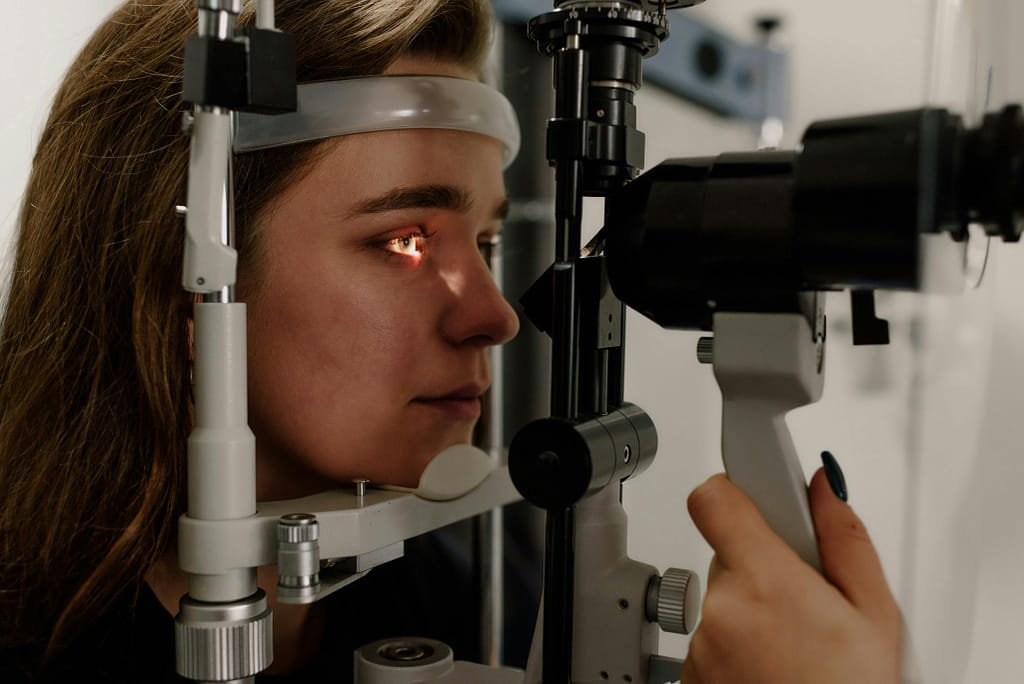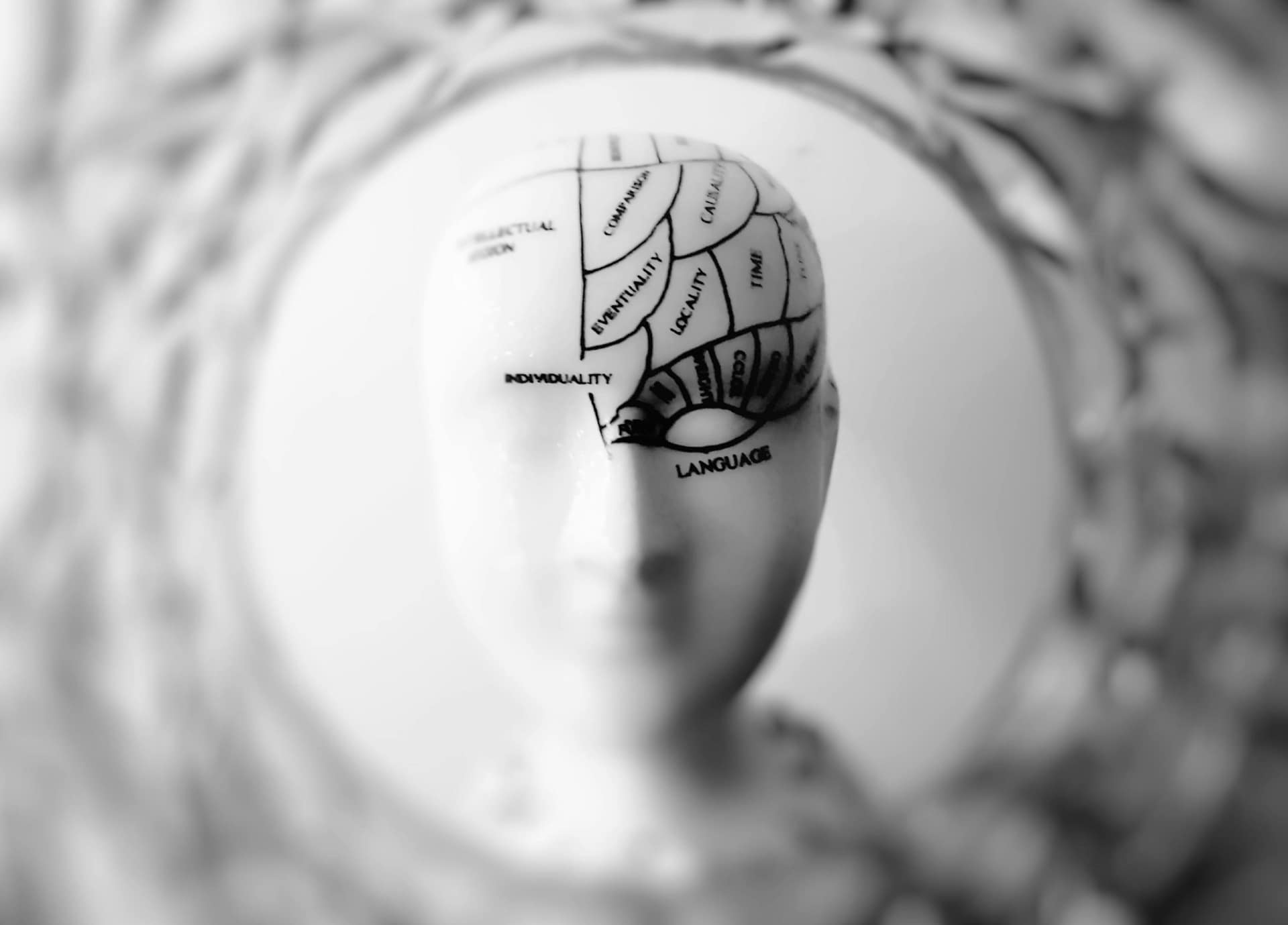Introduction: The Eye-Brain Connection You Can’t Ignore
Modern neuroscience has finally mapped the undeniable connection between eye and brain health, proving that your retina is essentially an extension of your mind. To understand how these changes manifest as physical symptoms, visit our Eye Symptoms & Relief HUB for a deeper look at what your vision is telling you. Your eyes are not just windows to the soul—they are windows to your brain. Every time you blink, focus, or track movement, billions of nerve signals travel between your eyes and brain in milliseconds. This intricate partnership allows you to see, interpret, and respond to the world around you.
Modern neuroscience confirms that changes in your eye health can often reveal early signs of brain conditions such as Alzheimer’s, Parkinson’s, and multiple sclerosis. Maintaining good vision, therefore, isn’t just about preventing eye disease—it’s about protecting your cognitive health too.
1. The Science of the Connection Between Eye and Brain Health
The eye and brain share more in common than you might think. During early fetal development, the retina grows as an extension of the brain, forming part of the central nervous system (CNS).
The optic nerve, consisting of over one million fibers, serves as a high-speed data cable transmitting visual information from the retina to the brain’s visual cortex. This system enables you to recognize faces, perceive motion, and distinguish color—all within fractions of a second.
Key takeaway:
If the brain is affected by disease or degeneration, it often manifests first through visual disturbances.
2. How Vision Reflects Brain Health
Changes in visual performance can indicate alterations in the brain’s structure or function. For example:
- Blurry or double vision may suggest neurological issues affecting the optic nerve or brainstem.
- Loss of peripheral vision can signal damage in the occipital lobe.
- Difficulty recognizing faces or reading may relate to cognitive processing deficits.
Eye health acts as a non-invasive biomarker for brain conditions, meaning optometrists can often spot issues invisible to other medical tests. Because visual signals occupy such a large part of cerebral activity, any disruption in vision is often the first clinical indicator that the connection between eye and brain health is being compromised by underlying issues.

3. Common Neurological Disorders Detected Through the Eyes
Several brain-related diseases leave “fingerprints” in the eyes. Here are some key examples:
Alzheimer’s Disease
- Retinal thinning and reduced blood flow are often early signs.
- Amyloid plaques (linked to Alzheimer’s) have been found in the retina.
Research published by the National Center for Biotechnology Information (NCBI) confirms that retinal imaging is now a validated method for observing the direct connection between eye and brain health in neurodegenerative patients.
Parkinson’s Disease
- Visual symptoms like dry eyes, blurry vision, and difficulty reading are common.
- Dopamine loss in the brain also affects retinal processing.
Multiple Sclerosis (MS)
- Optic neuritis (inflammation of the optic nerve) is one of the earliest symptoms.
- Patients often experience pain when moving the eyes or temporary vision loss.
Stroke
- Partial vision loss (hemianopia) or double vision can occur due to brain damage from reduced blood flow.
4. Eye Exams as Early Warning Systems
Regular eye exams are a window into your brain’s health. Eye care professionals use several advanced diagnostic tools:
- Optical Coherence Tomography (OCT): Visualizes retinal layers to detect thinning or nerve damage. Advanced imaging like OCT doesn’t just look for glaucoma; it actively monitors the connection between eye and brain health by measuring the thickness of the retinal nerve fiber layer, which mirrors the state of your brain’s neurons.
- Fundus Photography: Captures detailed images of the retina and blood vessels.
- Visual Field Testing: Identifies blind spots and neurological irregularities.
Routine eye exams every 1–2 years can detect early signs of systemic and neurological disease before other symptoms appear.

5. Brain-Boosting Habits for Better Vision
Protecting both brain and eye health requires a holistic lifestyle approach:
- Exercise regularly: Enhances oxygen flow to the brain and eyes.
- Sleep well: Sleep deprivation weakens cognitive and ocular function.
- Limit alcohol and smoking: Both accelerate oxidative stress and vascular damage.
- Engage your brain: Puzzles, reading, and creative tasks improve neural efficiency.
6. Foods That Nourish Both the Brain and Eyes
Certain nutrients power both your vision and cognition:
| Nutrient | Benefits | Sources |
|---|---|---|
| Omega-3 Fatty Acids | Supports retinal and brain cell membranes | Salmon, walnuts, chia seeds |
| Lutein & Zeaxanthin | Protect against oxidative stress | Spinach, kale, corn |
| Vitamin E | Prevents nerve cell damage | Almonds, sunflower seeds |
| Vitamin C | Strengthens blood vessels | Citrus fruits, bell peppers |
| Zinc | Essential for visual signal transmission | Pumpkin seeds, chickpeas |
| B Vitamins | Support neurotransmitter health | Whole grains, eggs |
7. Stress, Sleep, and Cognitive Eye Health
Chronic stress increases cortisol, which narrows blood vessels and reduces oxygen supply to both brain and eyes.
Poor sleep limits the regeneration of retinal cells and memory processing in the brain.
Solutions:
- Establish a nightly digital detox (no screens 1 hour before bed).
- Use blue-light filters and maintain a dark, quiet sleep environment.
- Practice mindfulness or meditation to lower cortisol and eye strain.
8. The Role of Technology and Screen Time
Excessive screen time overstimulates visual pathways, leading to:
- Digital Eye Strain (DES)
- Reduced blink rate and dry eyes
- Mental fatigue and cognitive overload
To minimize harm:
- Follow the 20-20-20 rule.
- Adjust brightness and contrast to match room lighting.
- Take regular breaks for physical and visual rest.
9. Natural and Medical Ways to Strengthen the Connection
- Visual Training: Eye exercises can enhance focus and coordination.
- Neuro-Optometric Rehabilitation: For patients recovering from concussion or stroke.
- Supplements: Lutein, omega-3s, and astaxanthin have neuroprotective effects.
- Laser and Light Therapies: Emerging methods to improve retinal and brain circulation.

Advanced Neuro-Vision Support
Strengthen the connection between eye and brain health with a formula designed to protect neural pathways and retinal cells simultaneously.
10. When to See a Specialist
Seek medical help immediately if you experience:
- Sudden vision loss or flashes of light
- Persistent double vision
- Severe headaches with visual disturbances
- Eye pain accompanied by dizziness or confusion
Early diagnosis can prevent permanent neurological and visual damage.
11. FAQs
Q1: What exactly is the connection between eye and brain health?
A1: The connection between eye and brain health exists because the retina and optic nerve are direct outgrowths of the central nervous system. Because they share the same nerve tissues and blood vessels, diseases that affect the brain often show symptoms in the eyes first.
Q2: Can an eye doctor detect brain tumors or strokes?
A2: Yes. By examining the optic nerve and retinal blood vessels, specialists can identify swelling or pressure that signals the connection between eye and brain health is compromised, potentially detecting tumors, strokes, or hemorrhages.
Q3: How do Alzheimer’s and Parkinson’s relate to eye health?
A3: Research shows that retinal thinning and amyloid plaques in the eye are biomarkers for these conditions. This proves that the connection between eye and brain health allows for non-invasive early diagnosis of neurodegenerative diseases.
Q4: Can improving my diet strengthen the connection between eye and brain health?
A4: Absolutely. Nutrients like Omega-3s and Lutein nourish both the brain’s gray matter and the retina’s photoreceptors, reinforcing the biological connection between eye and brain health and slowing down cognitive decline.
Q1: Can eye exams detect Alzheimer’s or Parkinson’s?
Yes. Eye scans can reveal changes in retinal thickness and blood flow associated with these diseases.
Q2: How often should I get my eyes checked for brain health?
Every 1–2 years, or more frequently if you have neurological symptoms.
Q3: Can nutrition really improve brain and eye function?
Absolutely. Nutrients like omega-3s, lutein, and zinc directly support nerve and retinal health.
Q4: Are vision problems reversible if caused by stress or fatigue?
In most cases, yes. Rest, stress reduction, and proper eye care can restore normal function.
12. Conclusion
The relationship between your eyes and brain is one of the most fascinating and vital connections in the human body. Your visual system not only helps you see the world but also reflects your brain’s overall health.
By taking care of your eyes—through nutrition, sleep, exercise, and regular check-ups—you are also preserving your cognitive function. In essence, protecting your vision means protecting your mind.
A Note from the Founder
"I started CVT because eye health is personal to me. After losing sight in my left eye due to a childhood injury and managing high intraocular pressure for decades, I’ve dedicated my life to finding the best ways to protect the vision we have. Every piece of advice on this site is researched with that same level of care and responsibility. Thank you for being here."



